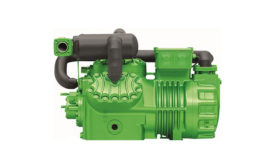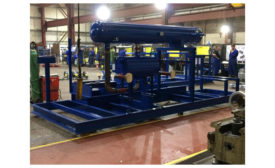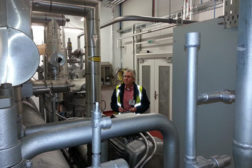Articles by Andrew Gaved
Adande publishes research that it says proves significant energy benefit and temperature control
Read More
First Magnetic Refrigeration System for Commercial Refrigeration Launches
Cooltech announces commercial availability of its MRS system for display refrigeration
Read More
Daikin Prepares to Offer Expanded HVACR Portfolio in UK
Company believes Zanotti purchase will offer one-stop shop
Read More
Bitzer Modifies Reciprocating Compressors for R-448A and R-449A Refrigerant
Low temperature applications now able to run with refrigerants under 1,400 GWP
Read More
European Heat Pump Industry Agrees on Keymark Standard
The Keymark is a quality assurance standard backed by third party testing and factory inspection
Read More
Project Is First to Combine Solar and Large Scale Heat Pump in District Heating
Star Renewable Energy and E.ON demonstrate how heat pump can replace CHP for lower cost and lower carbon heating
Read More
European Cooling Bodies Agree to Promote Use of Natural Refrigerants
Eurovent and eurammon sign memorandum of understanding over shared environmental goals
Read More
Refrigerant Supply Shortfall to Hit in Three Years
European manufacturers predict decreasing quotas will create a shortfall prior to 2020
Read More
European Report: ‘Refrigerant Supply Shortfall Will Hit Within Three Years’
Annually decreasing quotas will create a shortfall far sooner than 2020
Read More
Survey: 80 Percent of UK Ammonia Refrigeration Fails to Meet Dangerous Substances Standards
Thirty Percent of Sites Had Either No Risk Assessment or Inadequate Ones
Read More
Copyright ©2024. All Rights Reserved BNP Media.
Design, CMS, Hosting & Web Development :: ePublishing






